|

|
Prof. Aleksandar S. Jovanovic
Director
|
|
|
Aleksandar Jovanovic (MSc. ME, PhD) has worked for industry, research, EU institutions and universities, in a number of different countries, such as Belgium and Italy (EU, university), Germany (industry, research, university), France (university), USA (industry, university, research), etc. Since 2001, he is the director of the Steinbeis Advanced Risk Technologies Group in Stuttgart, Germany providing consultancy in the areas of risk assessment and risk management for industry and public sector. He is the CEO of the European Institute for Risk & Resilience Management (EU-VRi), bringing together about 50 industrial and research organizations active in the area of applied risk and resilience management, full professor at Steinbeis University Berlin (Technical Risks) and his other current and previous assignments include Italy (Politecnico di Milano), France (Ecole Polytechnique), Japan (University of Tokyo), USA (La Jolla), Serbia, Croatia and China.
Aleksandar’s main contributions to risk research and advancement of the respective state-of-the-art have been related to (a) industrial “risk projects”, (b) academic research in the area of risk (especially emerging risks and resilience) and (c) European and international risk standardization.
Aleksandar has a long-year professional experience as project manager of many large international industry “risk projects”, dealing with risk management, engineering risks, innovation risks, risk governance for new technologies, use of big data for risk analysis and related areas, etc. Main clients in these projects have been the EU, national governments (Norway, Belgium, Japan…), industry, utilities, insurances companies, R&D and academia. Main topics of the current projects deal with risk management in industry (e.g. for insurance, power, process) and include HSSE (Health, Safety, Security, Environment), RCM (Reliability Centered Maintenance), RBI (Risk-Based Inspection. Examples of the industrial projects are, e.g., the assessing risk of 40,000 MWe installed electric power capacity for Eskom in South Africa (about $10 million) or assessing risks refineries in Gazprom. Sample EU projects managed by him include iNTeg-Risk (www.integrisk.eu-vri.eu, 19.3 million €, 80+ partners), or SmartResilience (Resilience Indicators for critical infrastructures in Europe, www.smartresilience.eu-vri.eu).
In the area of academic risk research Aleksandar has been pioneering the risk-oriented probabilistic structural mechanics in 1980’s (stochastic finite element method), introduced risk methods in the engineering analysis of remaining life in 1990’s, developed new methods for risk-based optimization of inspection and maintenance in the industrial plants (power and process primarily). He is a coauthor of the milestone study/book on Future Global Shocks of the OECD (2013), author of 7 books and over 170 publications (www.researchgate.net/profile/Aleksandar_Jovanovic5).
As a “risk practitioner” in the area of international standardization, A. Jovanovic has contributed to the global risk community by a number of actions. He is the Convener and main author of:
(a) European standard CEN-CWA 15740:2008 (“Risk-Based Inspection and Maintenance”),
(b) European standard EN16991:2018 (“European Risk-Based Inspection Framework”)
(c) CEN-CWA 16449:2013 (“Management on New Technologies-Related Risks” also appeared as DIN SPEC
(d) ISO standard ISO 31050 “Management of emerging risks for enhanced resilience” – has involved SRA into the process, as an Organization in Liaison to ISO.
He act as the Liaison Officer in the ISO 31000 (risk management) ISO Committee, as a member of the Committees TC292 (security) and ISO 31010 (risk assessment methods , and as convener for the new ISO 31050 standard (https://committee.iso.org/sites/tc262/home/projects/ongoing/iso-31022-guidelines-for-impl-2.html).
In 2019, A. Jovanović was one of the main “Organizing Chair” of the SRA World Congress in Cape Town, South Africa (https://srawc.wpengine.com/congress-organization/).
Aleksandar speaks fluently French, Italian, English, German and Serbo-Croatian, reads and communicates in Spanish, Portuguese and Russian and has always used this to promote the risk-related issues in many countries.
|
|
|
|
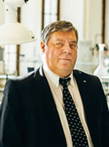
|
Prof. Walter Bogaerts
Non-Executive General Manager
|
|
|
Walter Bogaerts is professor of Corrosion & Materials Engineering at the University of Leuven (KU Leuven), Belgium’s internationally recognized leading university. He holds appointments in the departments of Chemical Engineering and Sustainable Chemical Process Technology. He teaches in KU Leuven’s post-graduate program on Safety Engineering and has been a long-time member of the Steering Committee of the national interuniversity program on Nuclear Engineering (BNEN).
He graduated summa cum laude as a chemical engineer from the University of Leuven and completed his PhD on corrosion problems in the energy sector (nuclear, geothermal). He further specialized at Cambridge University (UK) and Stanford Research Institute (SRI International, USA) with British Council, NATO and Fulbright fellowships.
With support of the international chemical industry, in the early 90’s he was the founder of a pioneering university spin-off company dealing with applications of advanced informatics and artificial intelligence in the field of materials and corrosion engineering (MetaLogic n.v.). In this framework he introduced some of the early concepts of RBI (Risk-Based Inspection) and intelligent corrosion prediction and monitoring.
With his team he also authored the first “e-books” in the field of corrosion, e.g. for Elsevier Science Publishers and NACE International, the world-wide corrosion engineering organization. For this work he received the T.J. Hull Award in 2001 and the NACE International Fellowship honor for technical excellence in 2020.
He has also been the European Director of the NACE organization and established its NACE-Benelux branch more than 20 years ago. He further has a long-standing relationship with the European Federation of Corrosion (EFC) and served as a chairman for a number of its formal Working Parties.
Aside from his scientific and academic profession, prof. Bogaerts had an industrial career and has e.g. been CEO of Belgium’s central nuclear waste treatment facility (Belgoprocess n.v.). Since 2019 he is the ‘Chief Strategy Officer’ of EU-VRi. He also runs his own engineering company and is a regular consultant for the European Commission and for the international chemical and nuclear industry.
|
|
|
|
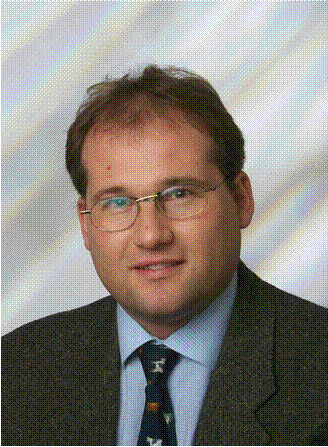
|
Dr. Jörg Michael Bareiß
Zustandsüberwachung und Kraftwerkchemie, Werkstofftechnik (TMZW)
|
|
|
Jörg Bareiß, (1965) PhD as Engineer in Mechanical Engineering (Materialprüfungsanstalt UNI Stuttgart, DE). Since October 1995 working at EnBW AG (before the merger of the companies EVS AG, BW AG and NWS AG to EnBW AG up to December 1998 at EVS AG) as Quality Assurance Engineer, today as Expert Senior Engineer at EnBW Kraftwerke AG (Generation Business Unit of EnBW AG) responsible for Materials (research, material behavior and damage assessment) and Quality Supervision of the new 912MW power plant, unit 8, of Rheinhafen Steam Power Plant Karlsruhe, which is still under construction. Since 2002 Chairman of the Technical Committee “Materials and Quality Supervision” of VGB PowerTech e.V., the European technical association for power and heat generation. Several publications in the field of Life Assessment of pressurized components, Condition Monitoring and Diagnostics of boiler parts and piping components, Risk Based Inspection and Maintenance and Advanced Calculation Methods of steam and reheat lines. Member of RIMAP-Project (FP7).
|
|
|
|
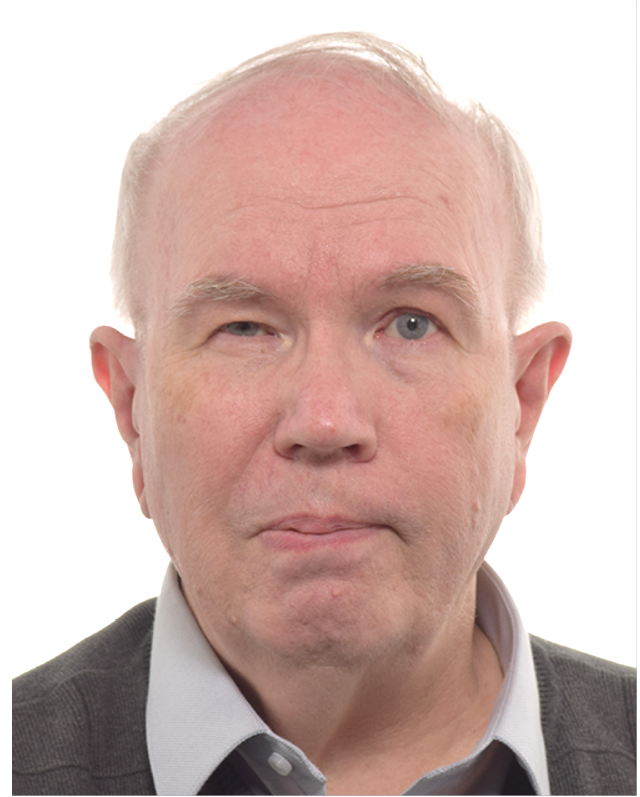
|
Mr. Pertti Auerkari
Chief research scientist
|
|
|
Pertti Auerkari (MSc, Lic.Tech.) is Senior Principal Scientist in the area of Knowledge driven design at the VTT Technical Research Centre of Finland Ltd in Espoo, Finland. Since graduating from Helsinki University of Technology (now Aalto University) in 1976/1983 on materials science, and a further stint in Osaka University 1984-86 in Japan on welded high temperature structures, his particular interests have encompassed condition and performance assessment, life prediction and failure analysis for power and process plants, with emphasis on high temperature applications. In terms of materials, these interests have involved mainly applications of metallic structures, but also research on utilizing modern engineering ceramics, and metal-ceramic and polymer composites. In terms of frameworks, his professional activities have included national, Nordic and European projects in related fields, and European projects on risk and resilience of critical industrial and other infrastructures. In addition to projects for local national customers, he has conducted contractual projects for international customers in Europe, South Africa, Middle East and South East Asia.
He has been a national representative since 1995 in supporting and developing the European standardization on materials for pressure equipment, and in projects developing European standards for risk assessment in industrial applications.
Mr. Auerkari has been a lecturer of professional courses on risk assessment, risk-based inspection (RBI) and reliability-centered maintenance (RCM) for Steinbeis, and on materials and non-destructive testing for his alma mater university in Finland, where he continues to support post-graduate education as a Senior Expert. Since 1988, he has been the chairman of the triannual Baltica series of international conferences on life management and maintenance for power plants (www.vtt.fi/baltica).
He has more than 200 publications on his areas of expertise.
Apart from his native Finnish, he is fluent speaker of English, independent user of Swedish and basic user of German.
|
|
|
|

|
Mr. Svetozar Eremic
|
|
|
Svetozar (MSc. ME) has worked in last 20 years for process industry, research, Engineering, EU institutions, in a number of different countries, such as Germany (industry, research, university), Russia (industry), China (industry), South Africa (industry). Since 2010, he Managed several departments in Oil Refinery, Serbia and providing consultancy in the areas of risk assessment and risk management, reliability, maintenance and HSE for industry and process plants. He is the partner of the European Institute for Risk & Resilience Management (EU-VRi), bringing together about 50 industrial and research organizations active in the area of applied risk and resilience management, lecturer at Steinbeis University Berlin (Technical Risks) and in Serbia.
Svetozar ‘s main contributions to risk research and advancement of the respective state-of-the-art have been related to (a) industrial “risk projects” (like Risk Based Inspection), (b) industrial research and implementation in the area of reliability (Reliability Centered Maintenance) and (c) European and international risk standardization.
Svetozar has a more than 20 years of professional experience as manager in process industry, participant in a many large international industry “risk projects”, dealing with risk management, engineering risks, innovation risks, risk governance for new technologies, use of big data for risk analysis and related areas, etc. Main topics of the current projects deal with risk management in industry (e.g. for insurance, power, process) and include HSSE (Health, Safety, Security, Environment), RCM (Reliability Centered Maintenance), RBI (Risk-Based Inspection. Examples of the industrial projects are, e.g., the assessing risk of 40,000 MWe installed electric power capacity for Eskom in South Africa (about $10 million) or assessing risks refineries in Gazprom. Sample EU projects participated by him include iNTeg-Risk (www.integrisk.eu-vri.eu, 19.3 million €, 80+ partners), or Smart Resilience (Resilience Indicators for critical infrastructures in Europe, www.smartresilience.eu-vri.eu).
He managed Maintenance in an Oil Refinery plants, was a Turnaround Manager and implemented new approaches in Risk based management.
Svetozar is dedicated to reliability approaches, HSE and process safety and therefore working everyday with field operators, plant managers, engineers to company leaders succeeding in implementation of innovative management, understanding of risk, risk mitigation strategies and leading by example approach.
Main area of developing is implementing continuous improvement methodology, working with employees, and couching in Lean 6 Sigma techniques for achieving sustainable results.
He implemented Risk based inspection in 2010 in several plants and power-plants, implemented CMMS and connected it to RBI system, and constantly improve it to new digitalization strategies (innovative mobility program and Digital Operator).
In the area of industrial consultancy Svetozar has been practicing and implementing the risk-oriented techniques in plant maintenance, introduced Lean 6 Sigma methodology and continuous improvement, risk-based optimization of inspection and maintenance in the industrial plants (power and process primarily).He participated in working groups of:
a) European standard CEN-CWA 15740:2008 (“Risk-Based Inspection and Maintenance”),
b) European standard EN16991:2018 (“European Risk-Based Inspection Framework”)
Svetozar speaks fluently English, German, and Serbo-Croatian, reads and communicates in Russian and has always used this to promote the risk-related issues several companies and countries.
|
|
|
|

|
Prof. Josef Peters
Executive Director
|
|
|
Josef Peters (MSc. Engineering) is a hands-on Mechanical Engineer who started off as an engineer for energy efficiency in Germany and progressed into the pressure equipment compliance field gaining on-site inspection experiences during In-service inspections and break downs on large generation power plants and petrochemical plants. The involvement in RBI processes was a natural consequence and followed automatically. He was a CEO of the TUV Rheinland Group of Companies in South Africa between 1997 to 2016 and is well known in South African circles for his contributions to plant safety in the petrochemical- and power industry. The main clients were users of large generation power stations (ESKOM) and of petrochemical industries (SASOL). Major aspects of these projects dealt with pressure equipment safety processes during manufacturing and in-service condition, covering most of the relevant international health and safety standards.
Josef’s main contributions have been related to (a) the implementation of the first international recognized certification scheme for RBI in South Africa according to ISO 17021 accreditation requirements, successfully certifying SASOL and 13 ESKOM power stations in compliance to the relevant API 580/581 and EN16991 standards, (b) the harmonization of international recognized manufacturing and in-service health and safety standards for pressure equipment into the South African legislative framework, (c) the contribution to international risk standardization development (CEN-CWA 14740 / EN16991:2018) in European technical committees through his connections to Steinbeis Advanced Risk Technologies (R-Tech) in Stuttgart (Germany).
Further to this, Josef was an active board member for several years at both SANAS (South African National Accreditation System and the SAIW-C (Certification Division of the South African Institute of Welding). He was also a chairman of the society of AIAs (Approved Inspection Authorities for pressure equipment in South Africa) for several years.
His European background and African experience coupled with a passionate interest in RBI-Engineering makes him a sought-after contributor. He continues to support the South African Industry and Government Departments in an advisory capacity, representing SAAMA (the South African Asset Management Association) at the Department of Labour as an RBI-expert and also works as a Technical Manager for the TUV-SUD Group in South Africa in their inspection agency department.
Currently he runs his own consulting company Energy Training Solutions B.V in the Netherland.
Josef speaks fluent English and German.
|
|
|
|
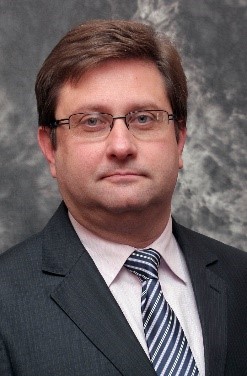
|
Prof. Petar Stanojević
Project manager
|
|
|
Petar Stanojević, (MSc. ME, PhD) has worked for the government, industry, research, EU institutions and universities, in Serbia (university, government, industry), South Africa (industry), Romania and Turkey (industry, university) and Germany (university). In 2005 he was elected a Full Professor. He has obtained international and domestic licenses in the field of Project Management, Design, Construction, several international risk certificates, two short Strategy MBAs in London and more.
Petar was the technical leader of the project of Risk Based Inspection (RBI) project at ESCOM, the fifth largest electricity producer in the world, in South Africa (the largest project of this type up to date in the world). In the project he was responsible for Power plant RBI Methodology development, RBI assessments and power stations RBI process certification and courses lecturing. Thirteen power stations RBI were certified and five recertified. Project got a prize for the best project in ESKOM in year 2015.
Petar was the State Secretary at the Ministry of Construction, Transport and Infrastructure and Assistant Minister of Energy for Oil and Gas (and pressure equipment). Additionally, he was Director of Jugopetrol (largest petroleum retailer in Serbia), Director of Development and Investments and Strategy of the Petroleum Industry of Serbia, Assistant to the Executive Director of the Ministry of Defense and commander of technical maintenance units. He managed investment programs up to $ 100 million a year and organizational and research projects up to 50 million euro. He was in charge of capital construction and procurement. Built and reconstructed 70 petrol stations. Petar participated in the design of the oil refinery Pancevo (natural gas and auxiliary units). Act as a founder of the Research Development Center in the Petroleum Industry of Serbia and introduced PED Directive, Seveso Directive and RBI in Serbia.
In his career he was a leader, coordinator and participant of dozens of national and international projects in the domain of strategy, organization, management, industrial safety, logistics, risk, information systems, reliability, organization of maintenance and management, total value of tens of millions of euros. Special emphasis should be given to the projects of introduction of the unique investment management system in Serbia, projects of introduction of the most advanced management systems "Opportunity Confirmation Program NIS" and "Business Improvement Program" implemented in cooperation with Shell. In cooperation with German institutes, for the first time in Serbia, maintenance systems for risks and reliability (RBI and RCM) were introduced into the Serbian refineries. The project "Reform of the Military and the Defense System" served as the basis for a military reform in the post-2005 period. The book "RCM - Maintenance to Reliability" is the first in this field in Serbian language. He led the project of designing and building the first automatic petrol station in Serbia. Petar introduced Marking and Monitoring of Petroleum Products in Serbia. Act as one of the co-authors of the Law on Commodity Reserves, South Stream gas pipeline and Energy low from 2014. In the drafting of the Energy Strategy of the Republic of Serbia, he participated as one of the co-authors. He participated in EU projects FP7 and FP6, as well as in projects of the Ministry of Science.
Author and co-author of 9 monographs and textbooks, 120 scientific and professional papers, part of which are published in international journals. Petar was a member of editorial boards of scientific journals and conferences. He held several courses, lectures by invitation and presided over sections at professional meetings. For his work he has been awarded several times. Petar received the Belgrade Chamber of Commerce award for the best doctorate thesis at the Belgrade University in 1997, and for one of the works he received an award from the University of Oxford. He was a member of the Council of the European Virtual Institute for Risks (EU VRI), member of the Serbian Engineering Academy, Management Board of the Yugoslav Association of Project Managers and a member of Serbian Society of Operational researchers.
Petar peaks excellent Russian and English language.
|
|
|
|
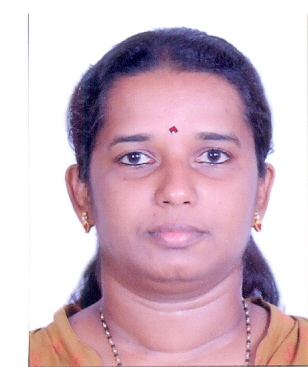
|
Prof. Gopika Vinod
Scientist - F, Reactor Safety Division ; Assistant professor, Homi Bhabha National Institute
|
|
|
Gopika Vinod (PhD.) is the professor at Homi Bhabha National Institute (Mumbai, India), head of Probabilistic Safety Section. She has experiences in conducting Risk based inspection on Chemical Plant, Risk in-service inspection for research reactor, has researched in Resilience methods for safety analysis, and has contributed in development of methodology for Passive system reliability, Software reliability, Dynamic reliability analysis and human reliability analysis.
Along with her professional experience, she has contributed in writing many publications including books, journal papers, conference papers, and BARC Report. She is also member of various committees in regulatory board.
She worked as Post-Doctoral fellow with Steinbeis Advanced Risk Technologies, Germany since 2007, visiting Scientist at Brookhaven National Laboratory and Lecturer at Steinbeis Hochschule Berlin
|
|
|